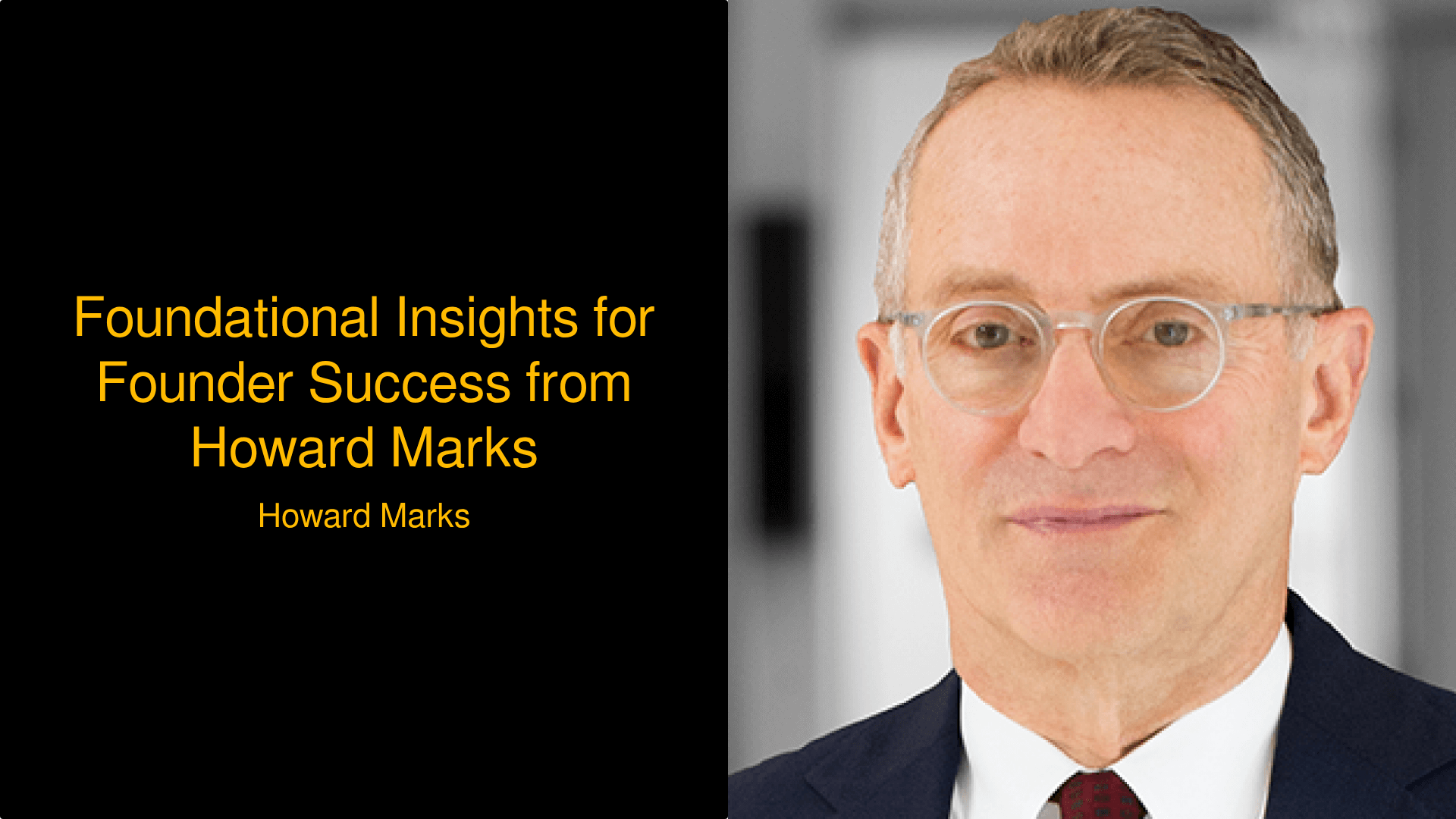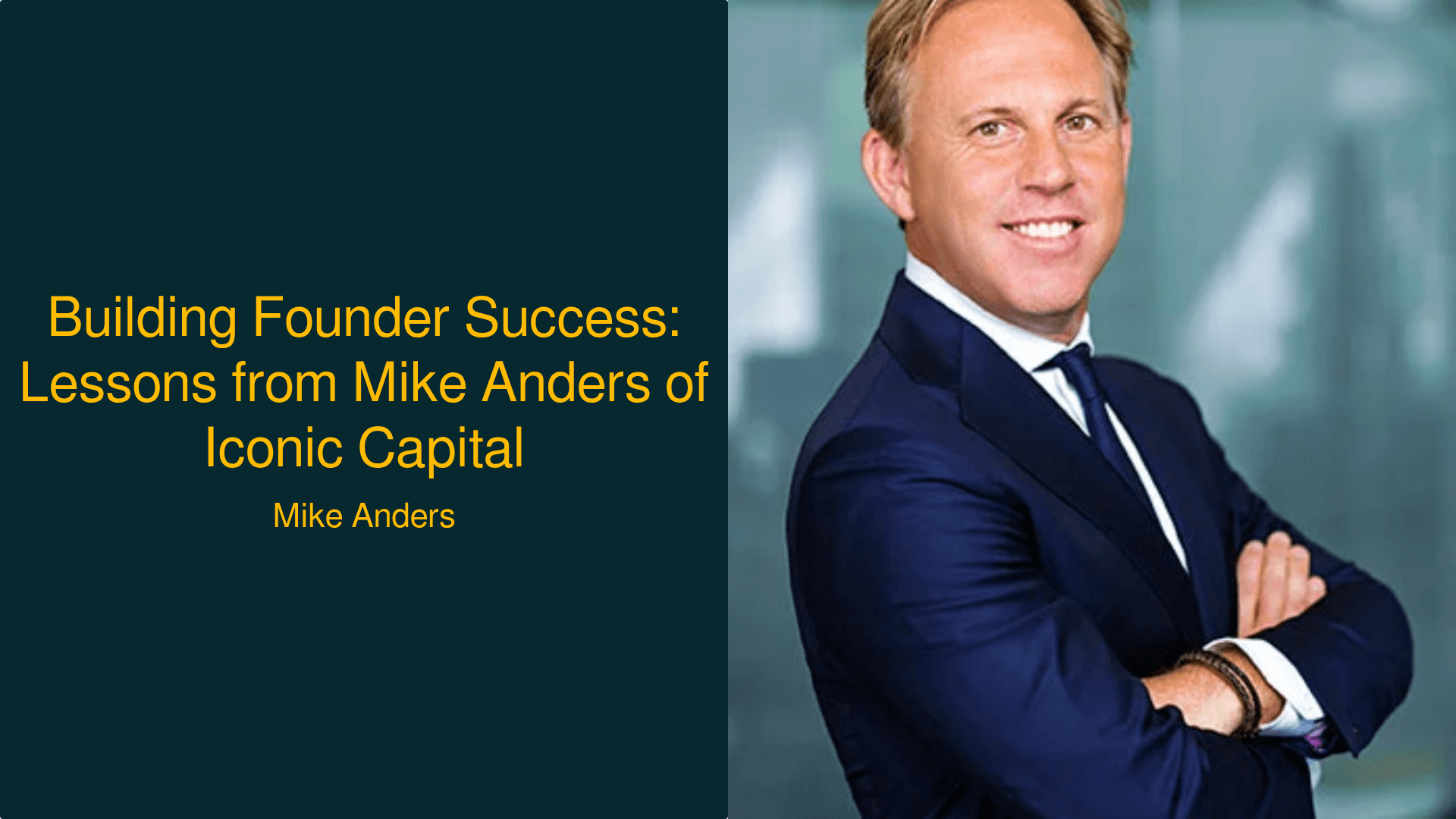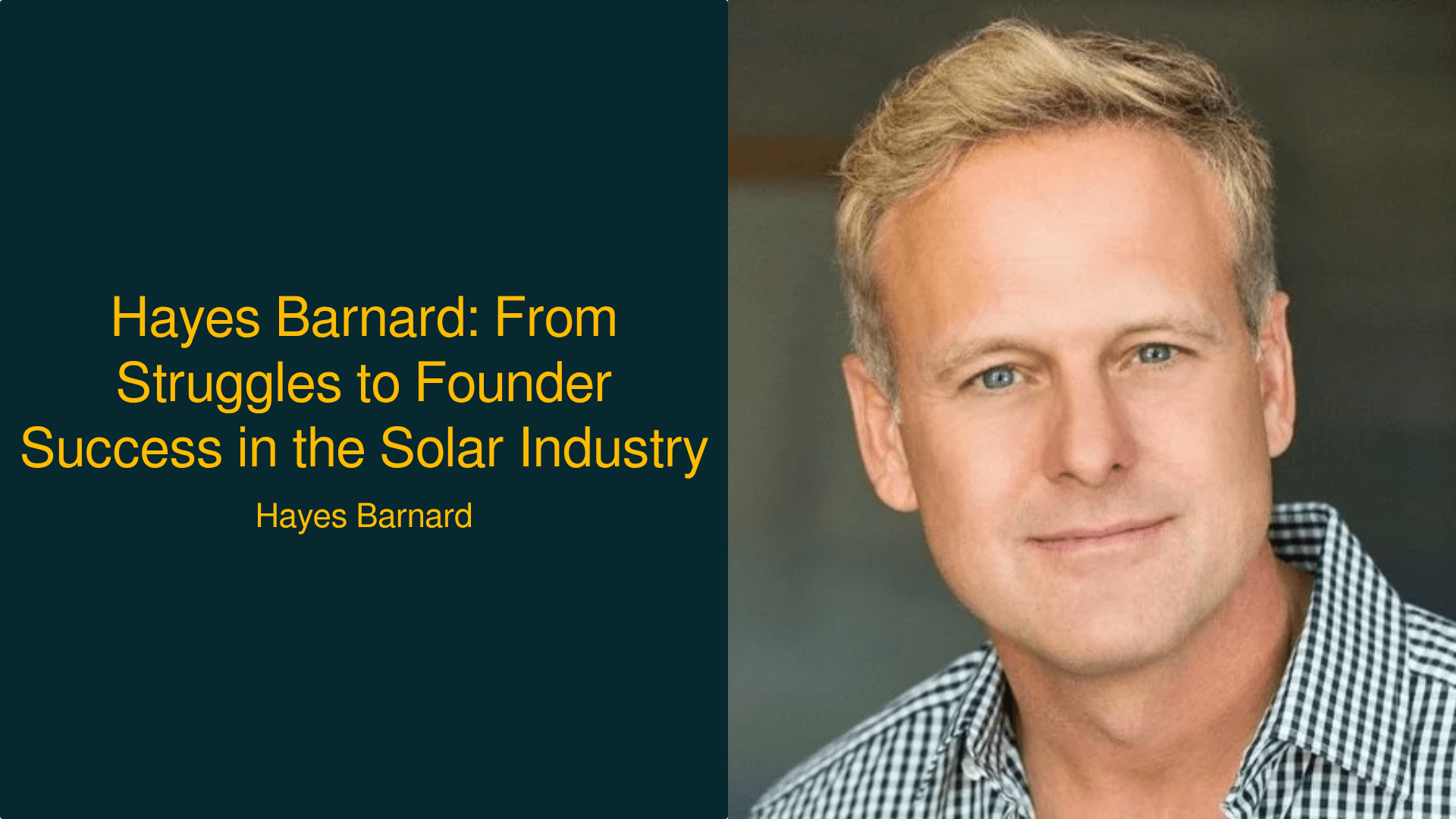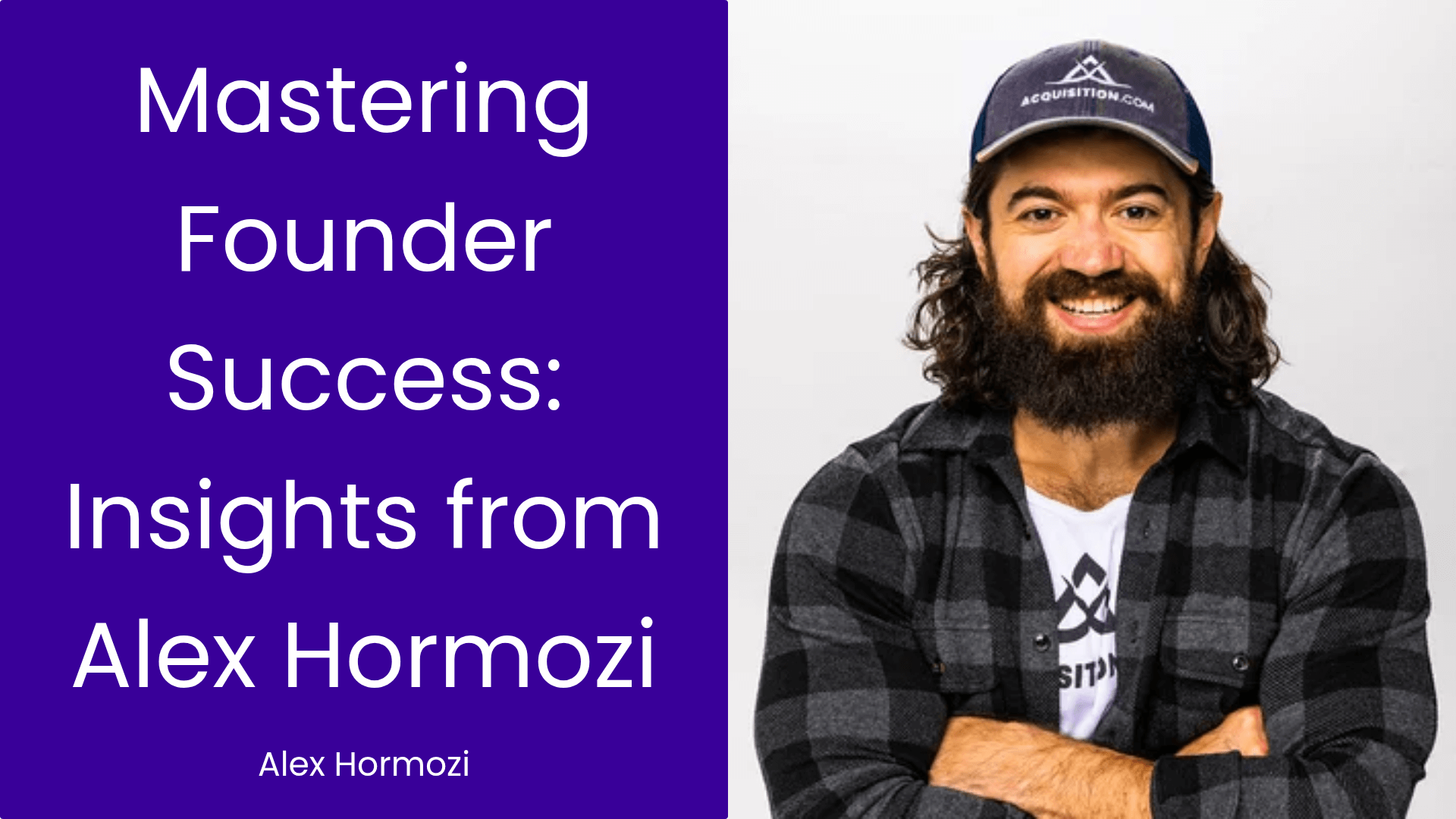Foundational Insights for Founder Success from Howard Marks
Discover actionable insights from Howard Marks on navigating investments and achieving founder success through contrarian thinking.

Foundational Insights for Founder Success from Howard Marks
In the ever-evolving landscape of entrepreneurship, the path to founder success is often fraught with uncertainty and challenges. However, there are lessons to be learned from those who have navigated these waters with remarkable success. One such individual is Howard Marks, co-founder of Oaktree Capital, a legendary investor renowned for his contrarian thinking and risk-focused strategies. Marks has built his career on the principle of ‘zigging when others zag,’ particularly during times of market turmoil and economic crises.
In this insightful interview, Marks shares his wealth of knowledge on investment strategies, behavioral finance, and the importance of understanding market cycles. He emphasizes the need for entrepreneurs and investors alike to cultivate a mindset that embraces risk while remaining prudent. This article will delve into the key insights drawn from Marks’ experience, offering actionable strategies and frameworks for founders seeking to achieve success in their ventures.
By examining his investment philosophy and decision-making processes, we can uncover the foundational principles of founder success that extend beyond financial metrics and delve into the realm of psychological resilience and strategic foresight.
The Power of Contrarian Thinking
The riskiest thing in the world is the belief that there’s no risk. — Howard Marks
Why it matters: Marks highlights the significance of contrarian thinking as a cornerstone of successful investing. His assertion that the greatest risk stems from complacency resonates deeply with entrepreneurs. In a business landscape where the majority may follow trends, the ability to identify opportunities where others see danger can set a founder apart. For instance, during the 2000 tech bubble, many investors were lured by the hype surrounding tech stocks, while Marks observed the irrational exuberance and opted for caution. This decision not only preserved capital but also positioned Oaktree Capital to capitalize on distressed assets in subsequent downturns.
Real-world applications of contrarian thinking can be seen in various successful startups that thrived during challenging times. For example, Airbnb emerged during the 2008 financial crisis, capitalizing on the need for affordable travel options. By recognizing this shift in consumer behavior, founders Brian Chesky and Joe Gebbia took a contrarian stance against traditional hospitality models, leading to their monumental success.
How to Cultivate Contrarian Thinking
- Analyze Market Trends: Regularly review industry trends and identify prevailing sentiments. Ask yourself how you can approach these trends differently.
- Embrace Skepticism: Instead of accepting consensus opinions, question the underlying assumptions. What evidence supports the prevailing belief?
- Seek Diverse Perspectives: Engage with individuals outside your typical network to gain fresh insights and alternative viewpoints.
- Test Your Ideas: Before committing significant resources, run small experiments to validate your contrarian hypotheses.
- Remain Agile: Be prepared to pivot your strategies based on new information, while maintaining your contrarian stance when necessary.
Understanding Market Cycles
We never know where we’re going, but we sure as hell ought to know where we are. — Howard Marks
Why it matters: Marks emphasizes the importance of understanding market cycles as a critical element for founder success. By recognizing where we stand in the economic cycle, entrepreneurs can make informed decisions about resource allocation, investment strategies, and growth opportunities. For instance, during the 2008 financial crisis, many businesses failed due to a lack of awareness of the impending downturn. Conversely, those who understood the cyclical nature of markets were able to position themselves advantageously, seizing opportunities when others were retreating.
A case study that exemplifies this principle is that of Netflix. In the early 2000s, when many companies were struggling, Netflix recognized the shift towards digital streaming and invested heavily in its technology and content library. This foresight allowed Netflix to thrive during a time when traditional media companies were faltering, ultimately transforming it into a dominant player in the entertainment industry.
How to Assess Your Position in the Market Cycle
- Conduct a SWOT Analysis: Evaluate your business’s strengths, weaknesses, opportunities, and threats in the current market context.
- Monitor Economic Indicators: Stay informed about macroeconomic indicators such as GDP growth, unemployment rates, and consumer confidence.
- Analyze Competitor Behavior: Observe how competitors are responding to market conditions. Are they expanding or contracting?
- Adjust Your Strategies: Based on your assessment, consider whether to adopt an aggressive or defensive posture in your business operations.
- Regularly Reassess: Market conditions can change rapidly, so it’s essential to reassess your position periodically to adapt your strategies accordingly.
Risk Management as a Foundational Principle
Don’t risk what you have and need to get what you don’t have and don’t need. — Howard Marks
Why it matters: Marks’ approach to risk management is rooted in the understanding that preserving capital is as crucial as generating returns. For founders, this translates into a conservative approach to resource allocation, particularly during uncertain times. By prioritizing risk management, entrepreneurs can safeguard their ventures against potential downturns and ensure long-term sustainability.
A notable example is the financial services industry during the 2008 crisis. Many firms that engaged in high-risk lending practices faced catastrophic losses, while those that adhered to conservative risk management principles emerged relatively unscathed. For entrepreneurs, adopting a risk-aware mindset can mean the difference between survival and failure.
Implementing Effective Risk Management Strategies
- Define Your Risk Appetite: Clearly outline the level of risk you are willing to take based on your business model and financial situation.
- Diversify Your Portfolio: Avoid putting all your resources into one venture or investment. Diversification can mitigate risk.
- Establish Contingency Plans: Prepare for potential setbacks by developing contingency plans that outline alternative strategies.
- Regularly Review Risk Exposures: Conduct periodic assessments of your business’s exposure to various risks, adjusting your strategies as needed.
- Foster a Risk-Aware Culture: Encourage team members to prioritize risk management in their decision-making processes, promoting a culture of caution and foresight.
The Importance of Emotional Discipline
A battlefield hero is not somebody who’s unafraid. It’s somebody who does it anyway. — Howard Marks
Why it matters: Marks underscores the role of emotional discipline in successful investing and entrepreneurship. The ability to remain composed under pressure and make rational decisions is paramount for founders, particularly during turbulent times. Emotional discipline ensures that entrepreneurs do not succumb to fear or greed, allowing them to make decisions that align with their long-term vision.
For instance, during market downturns, many entrepreneurs may feel compelled to cut costs drastically, potentially jeopardizing their growth prospects. However, those who maintain emotional discipline can assess the situation more objectively, making informed decisions that balance short-term challenges with long-term goals.
Cultivating Emotional Discipline in Decision-Making
- Develop a Decision-Making Framework: Establish clear criteria for making decisions that align with your business objectives and values.
- Practice Mindfulness: Incorporate mindfulness techniques to manage stress and enhance emotional awareness during critical decision-making moments.
- Seek Feedback: Engage trusted advisors or mentors to gain perspective and challenge your assumptions before making significant decisions.
- Reflect on Past Experiences: Analyze previous decisions to identify patterns in your emotional responses and learn from them.
- Create a Support Network: Surround yourself with individuals who can provide emotional support and constructive feedback during challenging times.
Conclusion
The insights shared by Howard Marks provide invaluable lessons for founders seeking to achieve success in their entrepreneurial journeys. By embracing contrarian thinking, understanding market cycles, prioritizing risk management, and cultivating emotional discipline, entrepreneurs can navigate the complexities of business with greater confidence and resilience.
As we reflect on the principles outlined in this article, it becomes clear that founder success is not solely defined by financial outcomes, but by the mindset and strategies employed along the way. In a world where uncertainty is the only constant, the ability to adapt and make informed decisions is what sets successful founders apart from the rest.
In conclusion, aspiring entrepreneurs are encouraged to take these lessons to heart, applying them in their own ventures. Whether it’s through contrarian thinking or a steadfast commitment to risk management, each step taken toward understanding the nuances of the market can lead to greater success. As Howard Marks aptly stated, “The only question that’s relevant is what mix?” By finding the right balance in their approaches, founders can pave the way for their own success stories.


